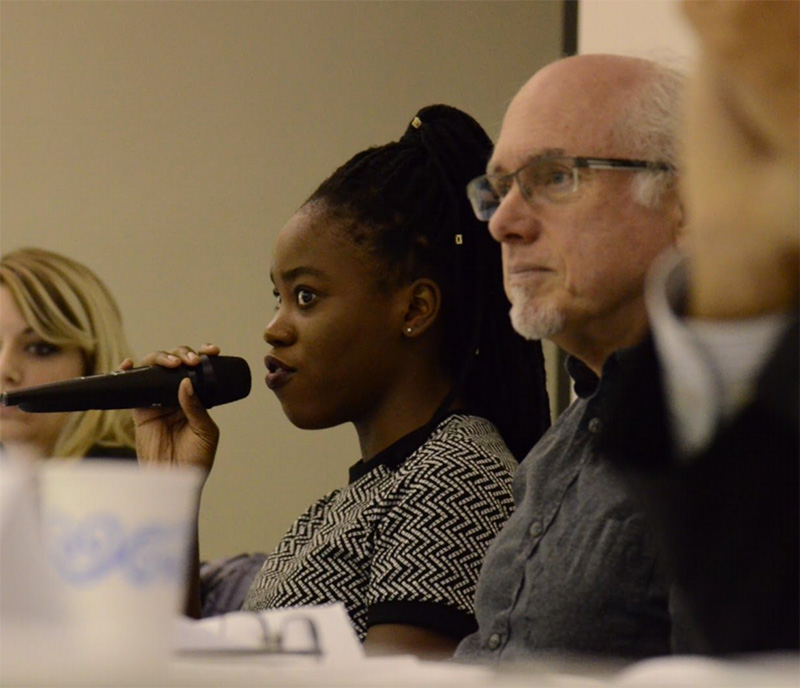In the Rise of Climate Change, we Need to be Vigilant about Climate Justice
Although climate change will transform the face of the planet, our socio-economic systems ensure people of color have been affected first and will continue to be hit the worst. Luckily, our communities also have the solutions.

Both of my homes are under attack.
Growing up in New York City, it is hard to erase the memories and images of Superstorm Sandy from my mind. The ferris wheel on Coney Island boardwalk being drowned by sea water, my friends missing school for 3 weeks because of flooding, waterlogged homes, and all while being forced to watch the city streets disappear under feet of water.
As a Trinidadian-American, I also have the burden of worrying about Trinidad and Tobago. A small island country in the Caribbean, soon to be engulfed by the rising sea levels. My grandmother, who lives in a house by herself, has to deal with hotter and drier dry seasons and more flooding from the rainy season.
For most people climate change is a distant, lagging thing that will affect them in the future. For others, like people that live in the low lying islands of the Maldives, or communities of color in New York City or the Gulf South climate change is real, personal - and here - now. We are the front lines of the climate crisis. And the time to act is now.
Although climate change will transform the face of the planet, our socio-economic systems ensure people of color have been affected first and will continue to be hit the worst. Luckily our communities also have the solutions. The climate justice movement is ready to move towards a just transition and creating sustainable, livable communities.
This summer, a team of young people from frontline communities, like myself, built our own platform. We have invited frontline youth from New York City and beyond to join us. On August 3rd, we will gather in New York City and draft a national declaration on behalf of the young people in the climate justice movement about how we would like our future to look. It is called the Climate Justice Youth Summit.
As an intergenerational multi-racial issue we must tackle it as an intergenerational multi-racial movement. This meaning that the frontline communities, communities of color, must speak for themselves and be supported to implement the solutions they want to see. Communities of color have been used as poster children for too long. Our expertise has been put on the back burner for preference of the “expertise” of people who know nothing of the communities they study.
In addition, those that are older have to share intergenerationally with those that are younger about the means of organizing and preparing for the future. Our keynote speaker Danny Glover exemplifies this. Issues that have long affected people color such as policing and gentrification will only be amplified when another Super Storm Sandy or Hurricane Katrina hits. Those who have faced neglect and indifference, in New York City, from the government and city can testify to this. Those who have been displaced after evacuations in New Orleans can affirm this.
The climate justice movement is ready to move towards caring for and saving the lives of those who have been forgotten with or without the support of allies. From the civil rights movement to South Africa to Black Lives Matter, young people of African and Indigenous ancestry have shown time and time again that they are powerful, visionary and engaged in transformation.
The Climate Justice Youth Summit aims to grow a vine of leadership to strengthen the climate justice movement; this generation’s greatest threat.
The Climate Justice Youth Summit, organized by Uprose and the Climate Justice Alliance, is the largest gathering of the young people of color on climate justice in the country. This year's summit is by far the most important one to date. With a federal government attempting to steer the global climate beyond a point of no return, we are calling on frontline youth to step up, lead the resistance, and organize for climate justice. The summit will take place on Thursday, August 3rd 2017 in New York City, and you can find more information here.
Makayla Comas was born and raised in East Flatbush, Brooklyn. Comas is a student at the State University of New York College of Environmental Science and Forestry. She majors in environmental studies and hopes to pursue a graduate degree in urban and regional planning. As a climate justice youth summit coordinator for UPROSE, she hopes to connect concepts of environmental justice to the practice of urban planning.